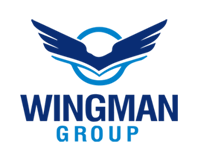
You need to ask yourself some tough questions BEFORE you issue the RFP
As you can imagine, as the former CEO of 919 Marketing, I’ve received my share of RFPs over the years. They run the gamut from being very generic and cookie-cutter to being overly granular and verbose. In almost every case, they never really get to the most important questions that truly separate and distinguish one agency from another, based on the true needs and expectations of the client.
If you have read other articles that I’ve written about franchise marketing, including one entitled “Why Clients Hate Their Franchise Marketing Agencies,” you know that I have a pretty unfiltered take on all things related to the relationship between clients and agencies. I’ve been on the client side as an EVP Marketing, worked for a global media company, and obviously have spent most of my later career on the agency side of the coin.
So, it should come as no surprise that my take is that your final RFP questions should establish transparency up front — on both sides. And to be transparent, you need to make some perhaps difficult decisions BEFORE you issue the RFP.
The top 10 questions the internal task force creating the agency RFP needs to answer before issuing include:
1 What is the yearly budget?
It’s always a chicken or the egg dance between clients and agencies. However, not having a budget range clearly established up front wastes your time and the participating agencies. It’s much better to trim the field based on budget realities right up front.
2 What would success look like in 6 months if we hired the right franchise
PR firm?
Be specific in terms of all aspects — key media outlets, specific topics, impact on organic search, etc.
3 Is it important that the partner you select does not also work with your
competitors?
If so, are you willing to agree to not work with another PR firm during the relationship? The competitor issue can be tricky when you include franchise brands outside of your specific segment (e.g. burger concept that considers other fast-casual restaurant brands as competitors).
4 How important are metrics in the selection criteria?
I know the obvious answer is yes. However, are you going to evaluate success by the velocity of mentions/features, traditional KPIs like impressions, equivalent media values, or are you looking for a more data-driven PR strategy based on the topics that motivate your target audiences to act?
5 How important is CEO branding to your company?
Does the CEO or founder have an appetite for becoming an industry thought leader? I personally think this is critical to building the franchise brand of the future. After all, people buy from people
6 Have you created an internal document outlining what resources are
required to support your agreed upon PR goals?
This needs to include an approved assessment of where the brand stands PR wise (the benchmark), a projection of the number of hours it will take per month per staff person to manage the agency relationship, an outlined approval process by key decision-makers regarding PR campaigns and media interviews, agreement on who the designated spokesperson is, and more
7 What are your priorities from a media coverage perspective?
You should prioritize the potential franchise PR services you are looking for. I wouldn’t disclose your priorities in the RFP, however. I would see how closely each candidate matches your priorities.
- National business and entrepreneur media
- National consumer media
- National franchise trades
- Other trade media (e.g. Nation’s Restaurant News for restaurant brands)
- Local media campaigns promoting franchisees as thought leaders
- Grand opening programs
- Crisis communications
- CEO branding/thought leadership
8 What personality profile best fits your main point of contact?
Identify the person(s) inside your company that will be the primary contact point with the selected agency. Think about their personality type and factor that into the decision making. For example, a no-nonsense left-brain person working with a right-brain creative type on the agency side, who is less likely to provide detailed reporting but bring big ideas to the table, may or may not be the right combination. Chemistry and communication are key to a great relationship.
9 What agency reporting cadence makes sense for your internal workflow?
My take is that you should decide your desired reporting cadence and communicate it as an expectation in the RFP. I’ve seen some clients who, in my opinion, wasted time (and fee hours) insisting on too many status calls and reports. I suspect it was due to pressure from non-believers in the organization that wanted to see immediate breakthrough results.
The reality is that both clients and agencies need regularly scheduled status or “progress” calls to discuss action items from the last call and to set action items for the next call. In addition, quarterly calls should be scheduled with the full team of agency and client stakeholders to measure progress against program goals and to calibrate overall program goals and strategies.
10 What specific types of agency “success stories” should you request?
To further evaluate the participating agencies, you should be specific in terms of the types of case studies or “success stories” you are looking for. You can decide to request any combination you desire.
Here are a few ideas:
- Direct category (competitive) brands
- Relevant brands (size, current market position, # of franchisees, etc.)
- That face similar PR challenges to your brand (be specific)
- Big brands looking to keep market share
- Small upstart brands looking to steal market share.
- If you address the 10 questions as outlined, you will create a much crisper and effective RFP document, select the right PR agency for you, and be better prepared internally to fully support the efforts of your new PR firm. Happy hunting!

